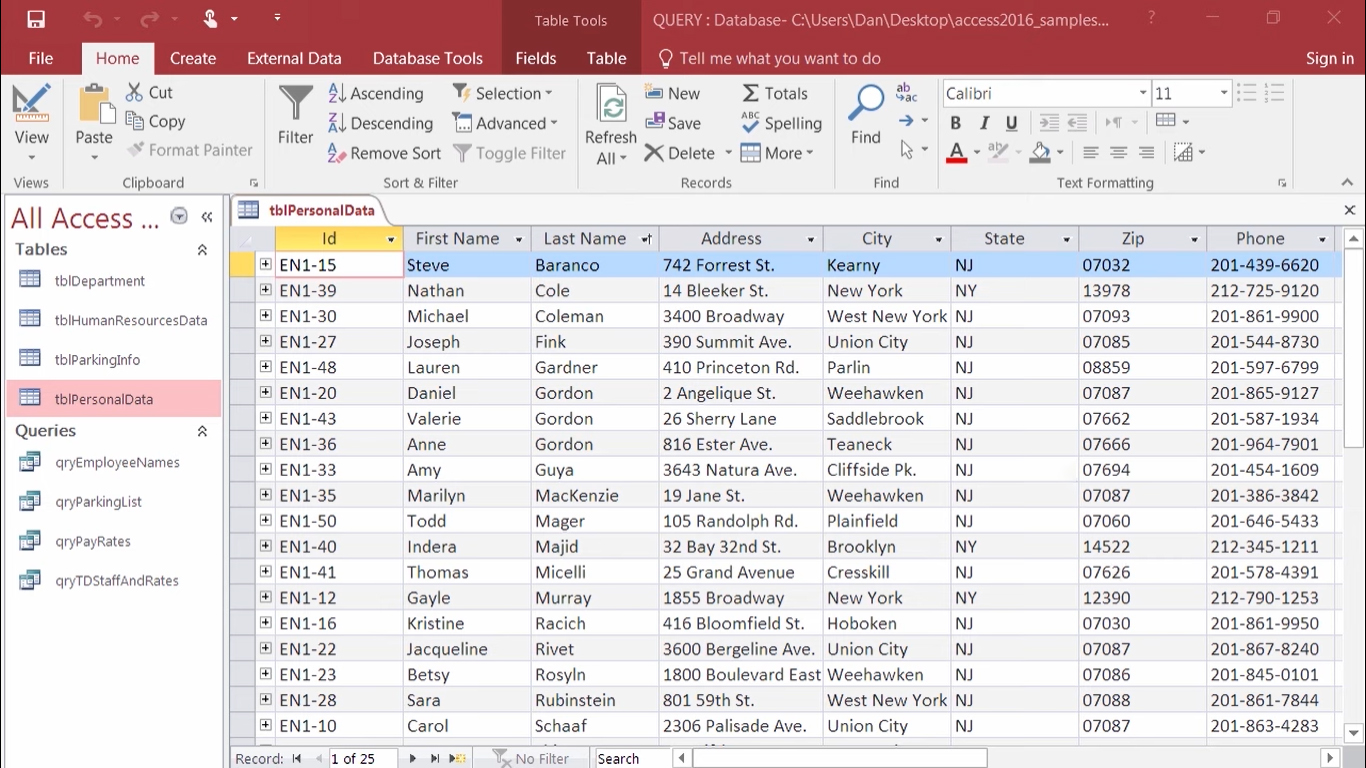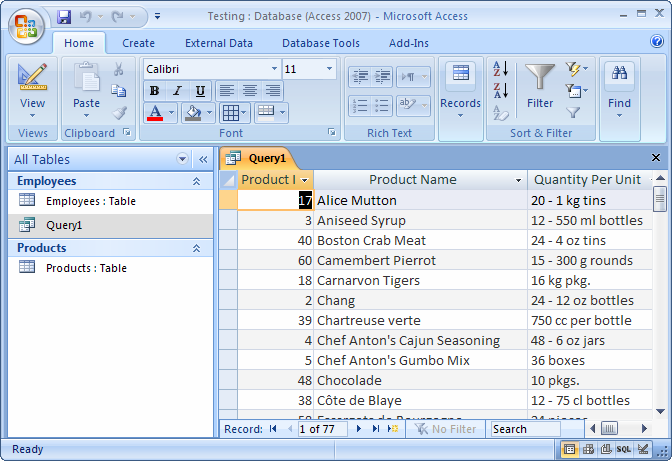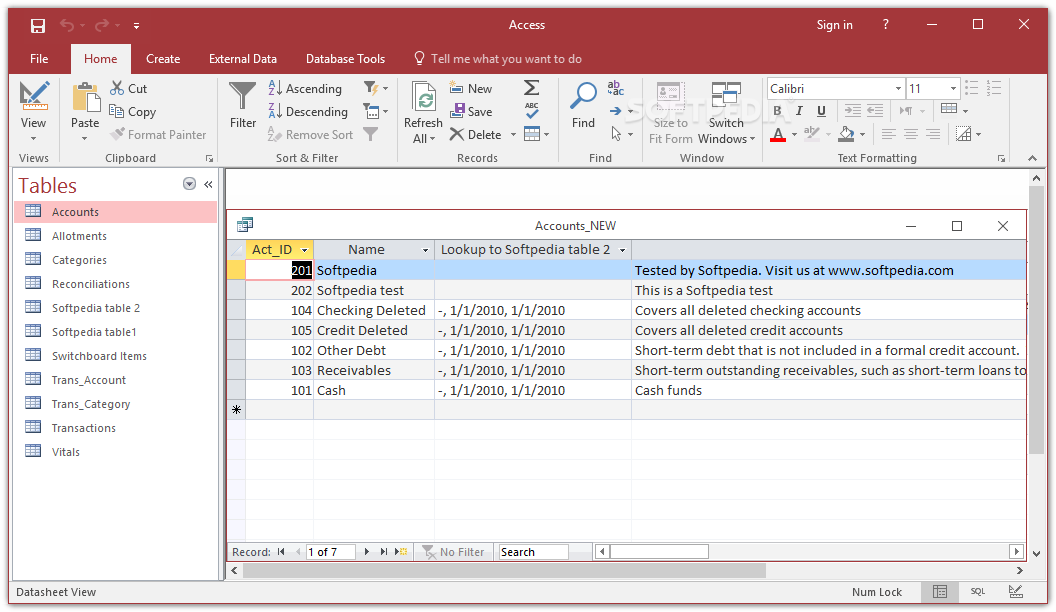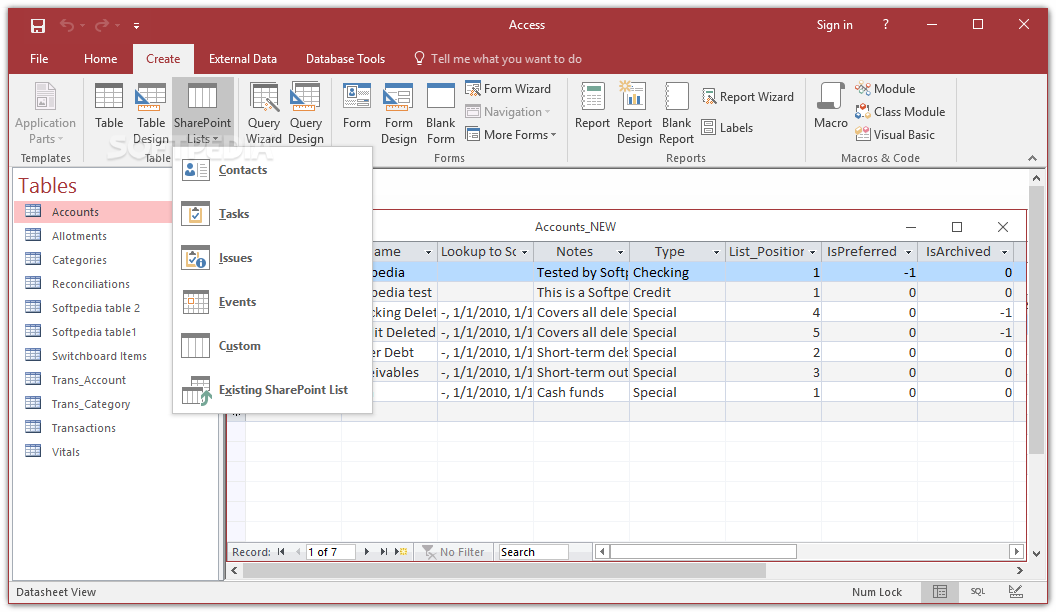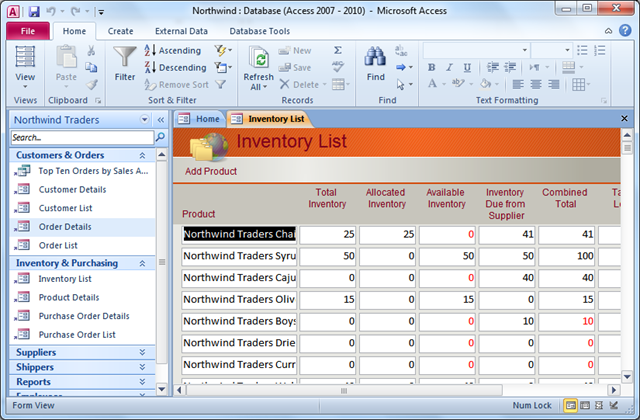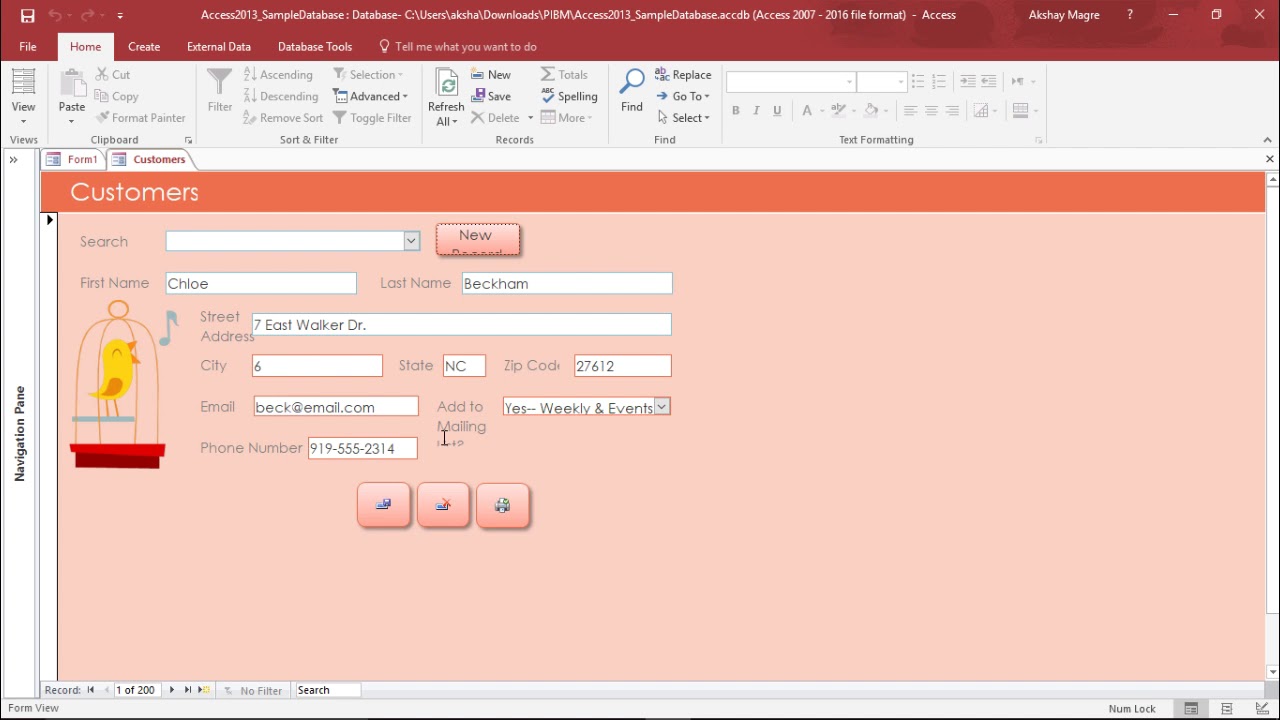Ms Access Presentation
| Introduction to Microsoft Access | ||
|---|---|---|
| Microsoft Access is a relational database management system (RDBMS) developed by Microsoft. It allows users to create and manage databases to store, organize, and manipulate large amounts of data. Access provides an intuitive interface and powerful tools for data entry, querying, reporting, and automation. | ||
| 1 | ||
| Key Features of Microsoft Access | ||
|---|---|---|
| Access offers a range of features to enhance data management, including tables, forms, queries, and reports. Tables allow you to store and organize data in a structured manner, with support for various data types and relationships between tables. Forms provide a user-friendly interface for data entry and editing, making it easier to input and update information. | ||
| 2 | ||
| Key Features of Microsoft Access (cont'd) | ||
|---|---|---|
| Queries enable you to retrieve and analyze data based on specific criteria, allowing for powerful data manipulation and reporting. Reports in Access allow you to present data in a visually appealing and professional manner, with options for customization and formatting. Access also supports macros and VBA (Visual Basic for Applications) for automating repetitive tasks and adding functionality. | ||
| 3 | ||
| Benefits of Microsoft Access | ||
|---|---|---|
| Access is cost-effective, as it is included in most Microsoft Office suites and does not require additional licensing. It offers a user-friendly interface, making it accessible to users with varying levels of technical expertise. Access allows for rapid application development, enabling users to quickly create custom database solutions tailored to their specific needs. | ||
| 4 | ||
| Benefits of Microsoft Access (cont'd) | ||
|---|---|---|
| With Access, you can easily share databases with others, either by storing them locally or on a network or cloud-based server. The security features in Access allow for controlling access to data and protecting sensitive information. Access integrates well with other Microsoft Office applications, such as Excel and Word, facilitating data exchange and collaboration. | ||
| 5 | ||
| Use Cases for Microsoft Access | ||
|---|---|---|
| Access is commonly used for small to medium-sized projects or departments within organizations. It is suitable for managing customer information, inventory tracking, event management, and project tracking. Access can also be used for personal projects, such as organizing collections, tracking expenses, or managing contacts. | ||
| 6 | ||
| Use Cases for Microsoft Access (cont'd) | ||
|---|---|---|
| Access is often used by non-technical users who need a flexible and easy-to-use database solution. It is ideal for creating simple databases or prototypes quickly without extensive programming knowledge. Access can be a stepping stone for users who later transition to more advanced database systems. | ||
| 7 | ||
| Limitations of Microsoft Access | ||
|---|---|---|
| Access has limitations when it comes to handling large datasets or high concurrency environments. It may not be suitable for complex databases with advanced data analysis requirements. Access has limited scalability compared to enterprise-level database systems like SQL Server or Oracle. | ||
| 8 | ||
| Limitations of Microsoft Access (cont'd) | ||
|---|---|---|
| Access relies on file-based databases, which can be prone to corruption or performance issues if not properly maintained. It may not be the best choice for web-based applications, as it is primarily designed for desktop use. Access lacks some advanced features found in other database systems, such as full-text search or built-in version control. | ||
| 9 | ||
| Conclusion | ||
|---|---|---|
| Microsoft Access is a powerful, user-friendly database management system suitable for small to medium-sized projects. It offers a range of features for data organization, entry, analysis, and reporting. While it has its limitations, Access remains a popular choice for individuals and organizations looking for a cost-effective and flexible database solution. | ||
| 10 | ||

